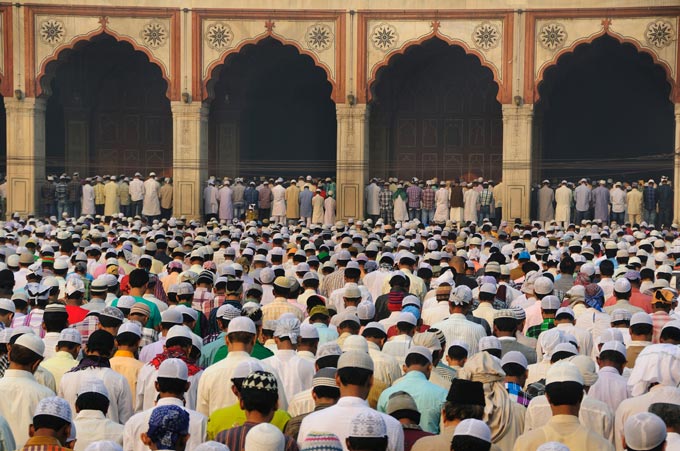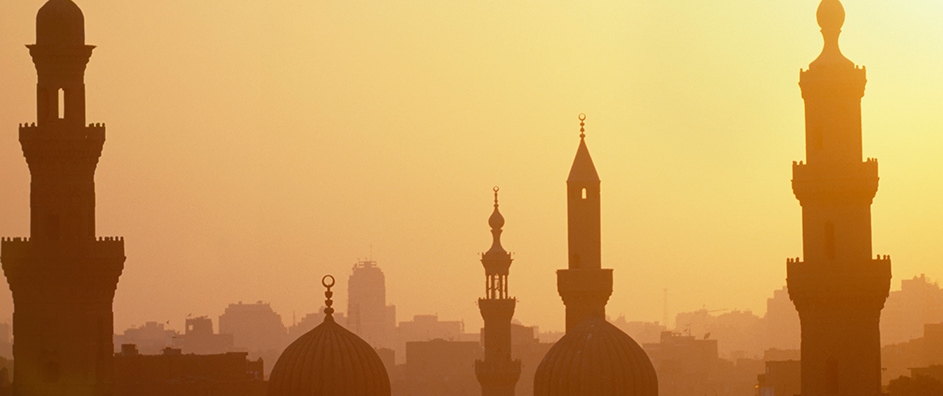The views expressed in our content reflect individual perspectives and do not represent the authoritative views of the Baha'i Faith.
In the previous article we saw that the Qur’an itself raises the possibility of divine messengers after Muhammad.
This gives us an excellent reason to rethink the meaning of Qur’an 33:40, which describes Muhammad as ‘the Seal of the Prophets.’ Baha’is accept this title of the Prophet Muhammad without reservation, but do not share the orthodox Islamic view of its meaning.
So what does the title ‘Seal of the Prophets’ mean? What does it tell us about Muhammad’s role in the history of progressive revelation?
In the Book of Certitude, Baha’u’llah quotes a tradition from one of the Shi’i Imams:
We speak one word, and by it we intend one and seventy meanings; each one of these meanings we can explain. – p. 255.
All holy scripture has many levels of meaning, so we can identify, not one, but several meanings behind Muhammad’s title ‘the Seal of the Prophets’ that do not require him to be the last divine messenger for all time.
The Arabic word translated as ‘seal,’ khātam has multiple connotations. One of them means ‘last.’ When someone writes a document, rolls it up, and stamps it with his seal, the document is finished. This is the way Islamic orthodoxy typically understands it—but which, as we have seen, conflicts with the Qur’an verse 7:35.
 However, another valid meaning of the word khātam or ‘seal’ describes it as something that “removes…accidents, and causes of mischief…[and] protects…” (Lane’s Lexicon). When an official affixes his seal to something, he imparts his authority to it and protects its contents.
However, another valid meaning of the word khātam or ‘seal’ describes it as something that “removes…accidents, and causes of mischief…[and] protects…” (Lane’s Lexicon). When an official affixes his seal to something, he imparts his authority to it and protects its contents.
Understood in this way, Muhammad’s mission confirmed and protected that of all previous prophets. In fact, the Qur’an describes itself as a book “confirming what was before it” (Qur’an 3:3). Because of this, to be a Muslim one must believe not only in Muhammad, but also in Abraham, Moses, Jesus, and all other past divine messengers.
In this sense, each messenger in the chain of progressive revelation is the ‘Seal’ of the prophets that came before. Each prophet reminded his people of their covenant with God and the previous messenger—and fulfilled the prophecies of the past dispensation.
Baha’u’llah reveals in the Book of Certitude:
And were they [the messengers of God] all to proclaim: ‘I am the Seal of Prophets,’ they verily utter but the truth, beyond the faintest shadow of doubt. For they are all but one person, one soul, one spirit, one being, one revelation. They are all the manifestation of the ‘Beginning’ and the ‘End,’ the ‘First’ and the ‘Last,’ the ‘Seen’ and ‘Hidden’—all of which pertain to Him Who is the innermost Spirit of Spirits and eternal Essence of Essences. – p. 42.
In what scholars traditionally regard as a prophecy of Christ, the Old Testament Book of Daniel says:
Seventy weeks [of ‘years,’ which equals 490 years] are determined upon thy people and upon thy holy city…to seal up the vision and prophecy…” – Daniel 9:24.
Jesus Christ ‘sealed’ the prophecies of the Old Testament because he fulfilled and confirmed them. This did not exclude future messengers from coming after him, for Jesus himself promised:
But when the Comforter is come, whom I will send unto you from the Father, even the Spirit of truth, which proceedeth from the Father, he shall testify of me… – John 15:26.
Muhammad, too, confirmed and fulfilled the revealed books and religions up until his time, including the Gospel of Jesus. Yet, just as the past messengers pointed forward to the next manifestation of God, the Qur’an contains many prophecies of a future ‘meeting’ with the Lord.
In the Book of Certitude, Baha’u’llah points out that one of these prophecies occurs only four verses after the famous Verse of Sealing, in Qur’an 33:44:
Their greeting, on the day when they shall meet Him, will be ’Peace!’ And He has prepared for them a generous wage.
In the next part of this series, we will explore how the Qur’anic promise of the ‘meeting with God’ affects our understanding of Muhammad as Seal of the prophets.
You May Also Like
Comments

















"Even as thou dost witness how the people of the Qur’án, like unto the people of old, have allowed the words 'Seal of the Prophets' to veil their eyes. And yet, they themselves testify to this verse: 'None knoweth the interpretation thereof but God and they that are well-grounded in knowledge.'” Kitáb-i-Íqán, p. 213
In Islamic ...literature, at least, these two terms some times are used interchangeably, and though I'd have to ask someone fluent in Arabic or Farsi about the verses in Prayers and Meditations you linked to, I suspect that Bahá’u’lláh's use of "Prophets" and "Messengers" referred to Nabi, or other Arabic words that did not refer to Rasul. As Bahá’u’lláh is a Divine Manifestation, there would be no contradiction in His use of the terms in any of His Writings.
However, I also reckon that it doesn't actually matter what interpretation we use because there are several and many of them are probably true. What matters is that because the Qur'an cannot contradict itself and must be read as such the idea that Muhammad is the last Prophet of God holds no water.